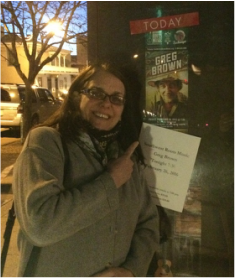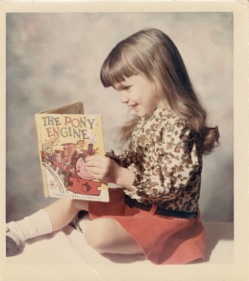
First, a surprise: Greg was not wearing a hat! Who knew the man had hair? Seriously, how often do we see him without a hat? But of course, he was wearing sunglasses.
Okay, now to the show.
One wonders how a songwriter as prolific as Greg decides what to play on any given night. He did say that his sister, who lives about 300 miles south in Silver City, was at the show, so he found himself choosing more family-oriented songs.
Here is the set list, along with some comments:
• Mercy Mercy Mercy
• Walkin’ Daddy
• Douds Jail (A new song, he said, explaining that the town of Douds doesn’t even have a jail, but he got an idea and just wrote the song: “Writing songs is like being God’s secretary—you write what you’re told and you don’t ask questions.”)
• Cheapest Kind
• Bones Bones (Lots of gravelly voice here.)
• Verona Road? (Not sure about this song. Oh, the shame...)
• Rexroth’s Daughter (Greg explained how Kenneth Rexroth, a beat-generation poet he admired, wrote a lot about his own daughters.)
• Spring Wind
• Never So Far
INTERMISSION
• Fat Boy Blues (Hilarious, especially at the end when he delivered a minute or two of grumpy, croaky murmurings that sounded like a fat man trying to get off a couch.)
• Laughing River
• Down at the Mill (He explained that his grandfather, who had been a railroad man, went on to run a saw mill powered by an old steam engine, and that he loved to visit Grandpa there because otherwise he didn’t commonly see “large, drunk men fight so close to heavy machinery.”)
• Besham’s Bokerie (So glad to have heard his wacky falsetto up close.)
• You Drive Me Crazy (Complete with that fun scat-dialogue.)
• I Could Just Cry (He explained that he wrote this song about his 9-year-old grandson’s grandfather, presumably, according to fellow fan and novelist Glenn Stenson, Bo Ramsey's dad.)
• Jesus & Elvis (Greg explained the origin of the song: There really was a parking lot in Missouri, just off a highway along the Mississippi, where he encountered a man selling art out of his van. He pulled off the highway, jumped out of his ‘78 Impala, and there they were: two large velvet paintings, one of Jesus and one of Elvis, representing the essential conflict of his life. In velvet, yet. He bought both paintings.)
ENCORE:
• Earth Is a Woman
• If You Don’t Get It at Home
An odd moment toward the end of the show was when someone shouted from the audience, “Were you ever a baseball player?” (I guess she regarded “Laughing River” as an autobiographical account.) Greg handled the call-out with aplomb and shared a little about his athletic past—he played basketball and football and ran track. “I was pretty fast,” he said, adding that baseball was too slow for him when he was a kid, but that the pace was probably just right for him nowadays.
The audience gave Greg a standing ovation after the encore, the lights came up, and the crowd filtered out. But as I gathered up my coat and set notes, I noticed that I wasn’t feeling exhilarated. Instead I felt a little…blah.
Greg was brilliant, of course—such a wealth of talent, wisdom, and generosity of spirit encompassed in one human being. He’s my all-time favorite artist, and he gave a good show. But alas, the venue was a dud.
I’d seen Greg twice before in nightclub settings (the now-defunct Club West and Firestone Theater in Santa Fe) and once at an outdoor music festival (Thirsty Ear, just outside of town), hopping party scenes all. But the St. Francis Auditorium is an old decommissioned church, a textbook example of Pueblo Revival architecture with a high ceiling and the Stations of the Cross painted on the walls. I mean, who really wants to sit upright in a pew for two hours to listen to a famously down-home singer-songwriter? The concert felt more like a recital than a scene of fun and merriment, which I believe dampened the mood of the night.
Then there’s Santa Fe’s annoying tendency to close up early. Although the concert promoter told us Greg would be out in the lobby after the show to say hi and sign CDs, most of the crowd—around 400 people!—left when the show ended. Fifteen minutes later, when Greg came out, there were only a handful of us there to greet him. Granted, most of the audience was silver-haired, but was everyone really so sleepy that they couldn’t stay up a few minutes later to meet the dude they just spent $30 or $40 to see? Weird.
But I got to meet him, and that was a thrill. Although I already owned all the CDs they were selling, I bought one for a friend just to have an excuse to talk to him. And I’ll confess I had an ulterior motive.
My first novel, “Love and Death in a Perfect World,” was published last summer, and in it I quote from several of Greg’s songs. I contacted him through his website a few years ago to ask permission, and he gave me his blessing. This past December I emailed him again to ask for an address to send him a copy. After a few tries, he responded, and I mailed him a book with a message telling him how important his music has been to me. It seemed like the thing to do, considering his massive creative output has contributed so much to my life.
As he was signing my CD, I told him I was the person who’d sent the book that featured some of his lyrics. He replied, “Oh, right. How’s that going for you?” My guess is he hasn’t read it or even looked at it, but…oh well. It goes that way sometimes. I shook his hand, told him it was an honor to meet him, and moved on.
I woke up this morning with “Rexroth’s Daughter” in my head and I realize that of all the songs Greg played last night, this moved me the most. First, it’s one of the songs I quote in my novel: “Life is a thump-ripe melon, so sweet and such a mess.” That line is truly a comfort to me when pretty much nothing in life goes as planned—or hoped—and I remember it’s my choice to appreciate whatever sweetness comes my way.
But more importantly, also from that song, is a line I literally try to live by: “What is real but compassion as we move from birth to death?” I am filled with admiration and gratitude for the man. Thank you, Greg. Your music has made me a better person.




 RSS Feed
RSS Feed
